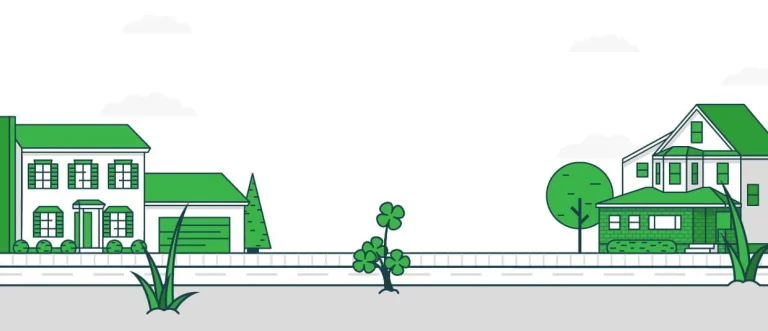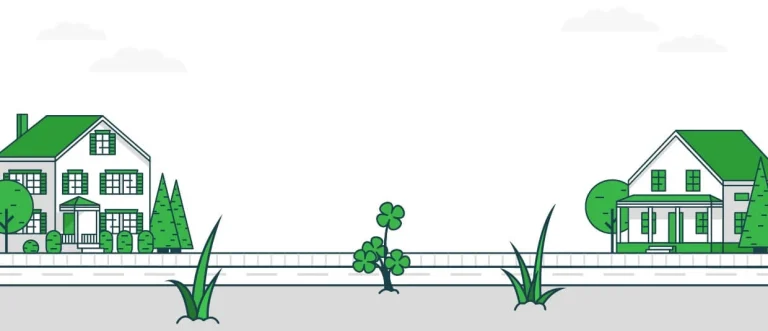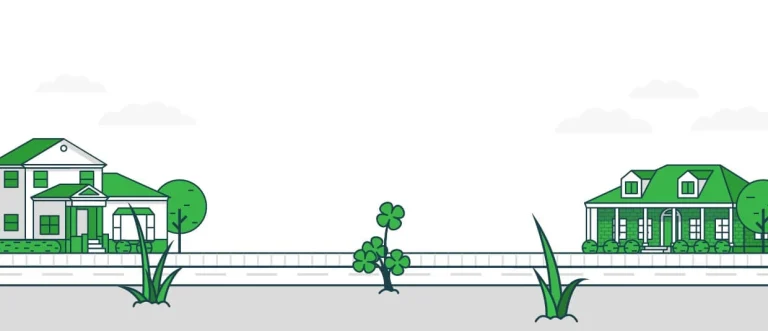Despite Indiana’s strong economy, the state remains a relatively affordable place to reside, with the cost of living continually below the national average. This is favorable for renters in the state looking to live within their means. This is also good for landlords as long as they can keep tenants.
To protect their investments, landlords need rental property insurance coverage. Landlord insurance policies are significant safety nets, financially shielding your property and liability in several ways.
The right rental property insurance policy can make a landlord’s life easier. Read on to learn how to find the best policy in Indiana.
How Much Is Landlord Insurance in Indiana?
Landlord insurance rates in Indiana are $1,697 for a $250,000 home, $2,777 for a $300,000 home, and $3,535 for a $400,000 house.
You’ll commonly find that landlord insurance premiums are between 15% to 25% higher than homeowners’ premiums on similar properties. We determined the average rental property insurance cost in Indiana for typical coverage levels based on home value.
| Cost of House | $250,000 | $300,000 | $400,000 |
|---|---|---|---|
| Annual Premium | $1,697 | $2,777 | $3,535 |
Unfortunately, according to our findings, these average landlord insurance rates in Indiana are relatively high compared to nearby states. Illinois’s rates are about $200 to $400 lower per year on $300,000 and $400,000 homes, and Michigan’s are even slightly lower than that.

Protect Your Investment With Landlord Insurance
You’ve worked hard to buy your rental property. Protect it with a custom policy at an affordable price.
What Does Landlord Insurance Cover in Indiana?
Landlord insurance is officially known as dwelling fire coverage. Dwelling fire policies (DPs) are for tenant-occupied properties and other properties that wouldn’t qualify for homeowners coverage, like vacant homes or investment properties.
The coverages you receive in a landlord insurance policy are:
Dwelling
Dwelling coverage is a part of every rental property insurance policy. It covers the structure of your rental, accounting for the roof, walls, flooring, patios, siding, pipes, and more.
Other Structures
Other structures coverage financially protects the features on your property that aren’t attached to your main house. These can include sheds, fences, carports, detached garages, and more.
Personal Belongings Coverage
Personal property coverage in landlord insurance safeguards belongings you keep at your rental directly related to its upkeep, such as lawn equipment. It doesn’t cover your renter’s items.
Landlord Liability Coverage
Landlord liability coverage covers rental property owners from medical expenses and legal fees arising from a tenant or guest injury on your property.
Loss of Income Coverage
Loss of income coverage kicks in if your tenants have been forced to move out of your rental after covered property damage, like a fire. Your insurer can cover rent payments at fair market value while rebuilding your rental property.
Types of Rental Property Insurance in Indiana
Rental property insurance in Indiana isn’t one size fits all. Since situations and properties differ by the landlord, a few different policy options are available. You can find one that best suits your needs.
DP-1 Insurance Policy in Indiana
DP-1 insurance is the cheapest option. It covers claims settlements on an actual cash value basis, which means your insurer will subtract depreciation from all property losses before reimbursing you. DP-1s also cover the fewest potential sources of damage, called perils. DP-1s give you the least protection by far.
DP-2 Insurance Policy in Indiana
A DP-2 usually covers twice the named perils as a DP-1. For example, the most significant perils covered by a DP-1 are fire and wind damage. A DP-2 will cover those, as well as theft, vandalism, and water damage from freezing pipes, snow, ice, and more.
DP-2s also typically cover losses at replacement cost, which means your provider will pay about what you paid for an item when reimbursing you, no matter when you bought it.
DP-3 Insurance Policy in Indiana
DP-3s also cover rental properties at replacement cost, and they cover a few more instances of damage than a DP-2 will. DP-3 policies also often include liability and personal property coverage by default, while the other choices may not.
How to Find the Best Indiana Landlord Insurance
To get the best landlord insurance in Indiana, you need to understand your coverage needs and budget. Once you have an idea of what you want, get quotes from multiple providers to compare prices. Know that you can easily drop or add coverage to landlord insurance to make a policy the best fit.
Although a DP3 with dwelling, other structures, liability, loss of rent, and personal property coverage would be the best coverage option, it would also be the most costly. This isn’t attainable or necessary for every landlord.
If you have budget constraints, opting for a DP-2 with the needed coverage is a good option. For instance, if you have no other structures at your rental property, which is possible for condo or apartment units, you can drop other structures coverage and save money.
You may go with a DP-1 if you’ve got an extremely tight budget. You might also feel comfortable with a DP-1 if you live on-premises and take excellent care of your rental, so you can always keep an eye before something goes wrong. A DP-1 is rarely ideal, but it can work for some.
You can adjust your deductible to lower your premiums. Your deductible is the amount you must pay out of pocket when filing a claim before your insurance company covers the rest of the damages. You pick the deductible in your policy. Common deductibles range from $500 to $2,000.
Choosing a deductible on the higher end means you’re taking responsibility for covering more property damage you could incur out of pocket before asking your insurance company for help. Your carrier rewards you for this by lowering your premiums.
Comparing quotes when looking for the best landlord insurance in Indiana is essential. Not only do you find which companies can save you money, but you can also compare customer service and user experience.
Companies With the Cheapest Landlord Insurance in Indiana
Erie and Allstate tend to have some of the cheapest landlord insurance in Indiana, according to our table of some popular carriers in the state.
Insurance rates will vary based on the provider. Pictured below are some of the most well-known landlord insurance companies in Indiana and their average rates for $250,000 of coverage. From these six companies alone, premiums ranged by up to $757.
| Allstate | $1,418 |
| American Family | $1,980 |
| Erie | $1,402 |
| Farm Bureau | $2,159 |
| Nationwide | $1,979 |
| State Farm | $2,132 |
This list is by no means exhaustive. Indiana has over 170 home insurance companies, most of which will write rental property insurance. Your best bet at finding cheap landlord insurance in Indiana is by getting quotes from several providers to find the best deal.

Protect Your Investment With Landlord Insurance
You’ve worked hard to buy your rental property. Protect it with a custom policy at an affordable price.
What to Know About Landlord Property Insurance in Indianapolis
Renting is popular in Indianapolis, Indiana’s largest city. Rent prices have been rising for a few reasons, which means owning a rental property in Indianapolis has become even more valuable.
The weather can vary wildly in Indianapolis, with intense heat and rain in the summers and brutal cold and snow at times in the winter. Your rental property must withstand a lot from Mother Nature on top of a possible crime, tenant lawsuits, and more. Landlord property insurance in Indianapolis protects landlords from these and more.
The cost of landlord property insurance in Indianapolis will vary depending on where you are in the city. Rates may be higher in downtown Indy or affluent suburbs like Zionsville or Carmel, where property values are higher. You should compare rates from several providers to find the best choice.
Factors That Affect Landlord Insurance Rates in Indiana
Your provider will ask many questions when you get a landlord insurance quote in Indiana. These questions help the provider determine your property’s risk, which affects premiums. Riskier properties have higher rates. Questions will center around the features and details of your rental property.
Your provider will want to know what kind of rental property they’re covering. Residential landlord insurance can cover the following dwellings:
- Single-family homes
- Multi-family homes (duplexes, fourplexes, etc.)
- Apartment units and buildings
- Condo units and buildings
Larger residences will cost more to cover. For example, a duplex with a pool and carport will need more insurance coverage than a condo unit with no other structures.
You’ll also likely pay higher rates if you have short-term tenants rather than long-term ones. Short-term tenants are usually in a property for six months or fewer. Properties with short-term tenants have higher landlord premiums due to the greater odds of vacancy and larger liability risk of having more tenants.
Property location is important, too. Your provider will note that if your rental is in an area prone to tornadoes, flooding, or crime, you may pay more for coverage due to the increased risk of sustaining damage. Companies also take your distance to fire hydrants and fire stations into account. Being closer can mean lower rates.
Property features affect the cost of landlord insurance in Indiana, also. Certain things that make your property riskier, such as an old roof, a wood stove, a furnace, or a pool, can raise premiums. Insurers will also examine your claims history and credit score in some cases.
Is Landlord Insurance Required in Indiana?
Although landlord insurance isn’t required by law in Indiana, mortgage lenders require rental properties with mortgages to always have insurance coverage. So, you need landlord insurance in Indiana if you’ve got a mortgage on your rental.
When giving home loans, mortgage companies require insurance to protect their investment. They’re likely putting tens of thousands of dollars down. If your home gets destroyed by a covered peril, you and your lender won’t lose out on the value of your property by having to pay for repairs. You can both rely on the insurance company for help.
As long as you purchased your rental property with a mortgage, you must keep a type of landlord insurance coverage on it until you pay off the loan. If you don’t, your lender can force-place insurance on you.
Even if you pay off your mortgage, dropping your policy is not recommended. You’d be exposing yourself to several types of property damage that you’d have to cover out-of-pocket.
How to Get Indiana Landlord Insurance Quotes
Many carriers and agencies offer ways to get Indiana landlord insurance quotes online, such as Clovered. We’re an independent insurance agency specializing in home insurance, including rental property insurance. We’d love to help you with your landlord insurance quote in Indiana.
Use our property quoting tool to compare plans from top providers in your area entirely online. Or, feel free to call one of our licensed, in-house agents at 833-255-4117 during business hours. You can also email us at agent@clovered.com. We want to help you find the coverage you need at the price you want.
The editorial content on Clovered’s website is meant to be informational material and should not be considered legal advice.

 Average Cost of Landlord Insurance in Indiana
Average Cost of Landlord Insurance in Indiana 

